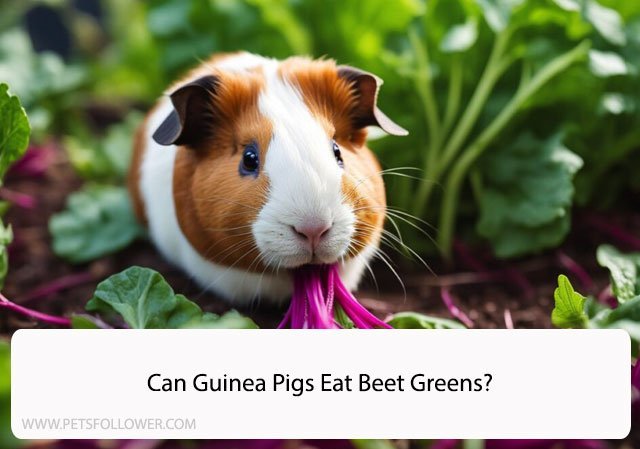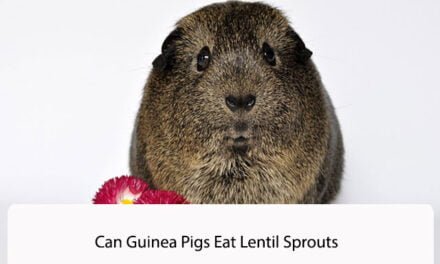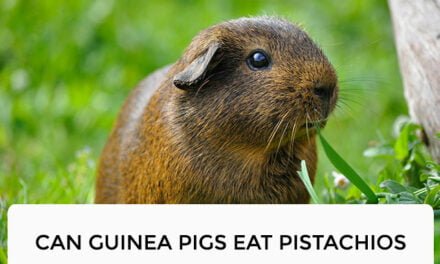Guinea pigs are adorable and friendly pets that love to eat fresh vegetables. As a responsible pet owner, it’s important to ensure that the food you give them is safe and healthy. Beet greens are a nutritious leafy vegetable that many people enjoy, but can guinea pigs eat beet greens?
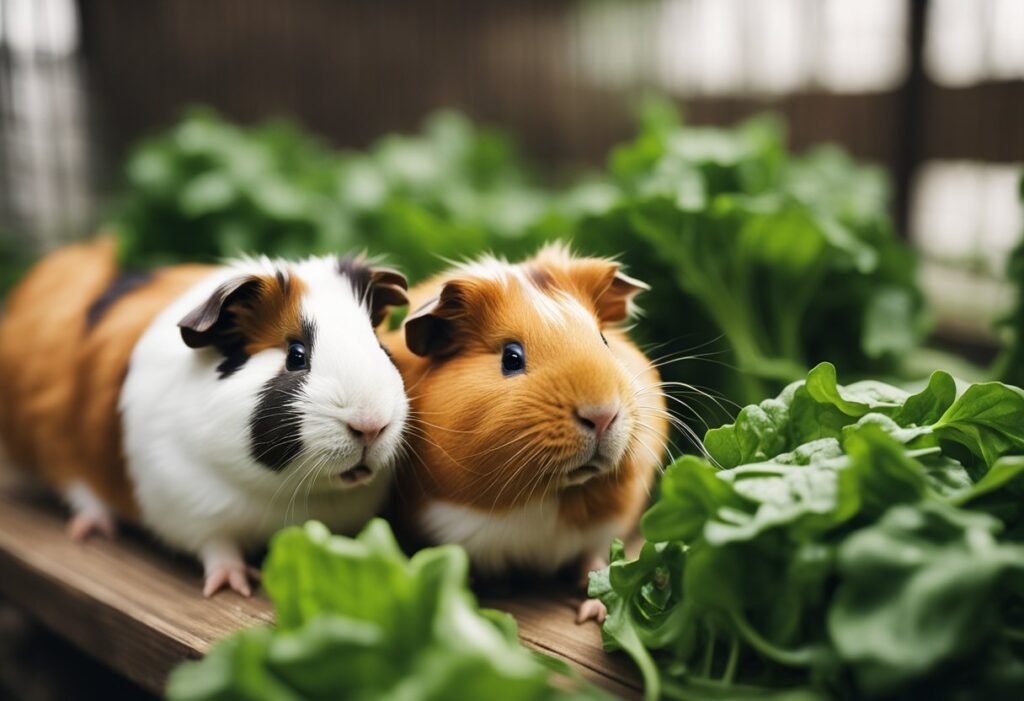
The short answer is yes, guinea pigs can eat beet greens. These leafy greens are packed with vitamins and minerals that can benefit your furry friend’s health. However, as with any new food, it’s important to introduce beet greens gradually and in small amounts to avoid digestive upset. In this article, we’ll take a closer look at the nutritional benefits of beet greens and how to safely incorporate them into your guinea pig’s diet.
What Are Beet Greens?

Beet greens are the leafy tops of the beetroot plant. They are packed with nutrients and are often considered a superfood. Beet greens are rich in vitamins A, C, and K, as well as minerals such as calcium, iron, and potassium.
These greens are typically deep green in color and have a slightly bitter taste. They are often compared to spinach or Swiss chard in terms of texture and flavor. Beet greens can be eaten raw or cooked, and are a popular ingredient in salads, soups, and stews.
When selecting beet greens, look for leaves that are crisp and brightly colored. Avoid greens that are wilted or yellowed. Beet greens can be stored in the refrigerator for up to five days.
It is important to note that while beet greens are safe for human consumption, they may not be suitable for all animals. If you are considering feeding beet greens to your guinea pig, it is important to consult with a veterinarian first to ensure that it is safe for your pet.
Guinea Pigs and Their Diet
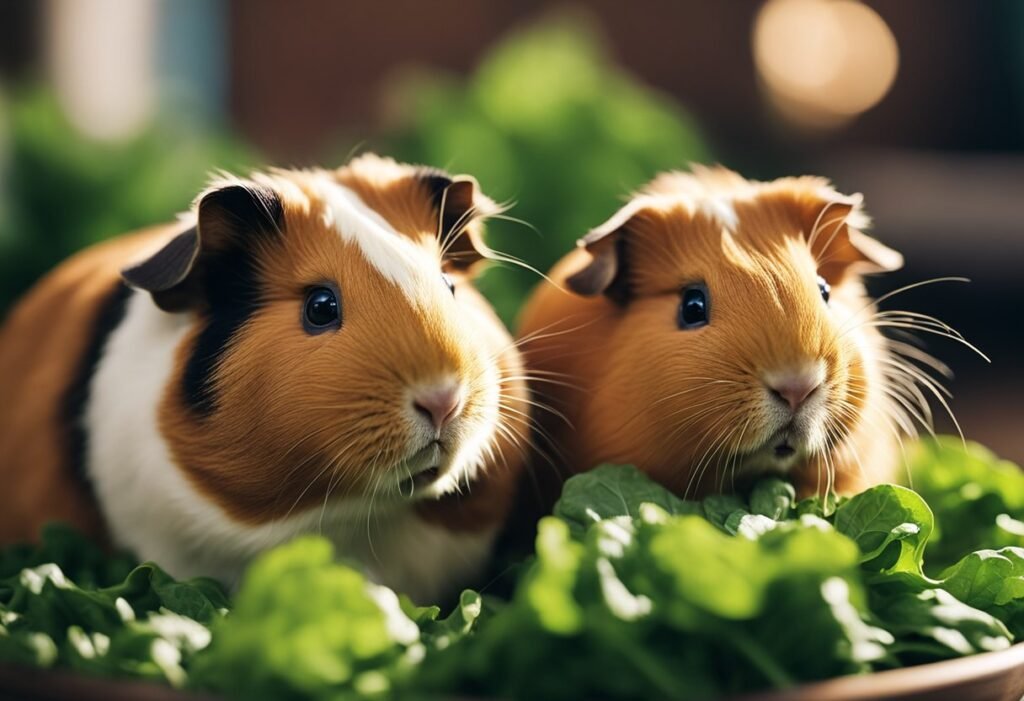
As responsible guinea pig owners, it is important to provide our furry friends with a balanced and nutritious diet. Guinea pigs are herbivores and require a diet that is high in fiber and vitamin C.
A guinea pig’s diet should consist of hay, fresh vegetables, and a small amount of pellets. It is important to note that not all vegetables are safe for guinea pigs to eat. Some vegetables, such as iceberg lettuce and avocado, can be harmful to their health.
When it comes to feeding guinea pigs vegetables, it is important to introduce new foods slowly and in small quantities. This allows their digestive system to adjust to the new food and prevents any potential digestive issues.
One vegetable that guinea pigs can safely eat is beet greens. Beet greens are high in fiber and vitamin C, making them a great addition to a guinea pig’s diet. However, it is important to note that beet greens should be given in moderation, as they are also high in oxalates, which can cause bladder stones if consumed in excess.
In summary, a balanced and nutritious diet is essential for the health and well-being of our guinea pigs. Introducing new foods slowly and in small quantities, and avoiding harmful vegetables, will help ensure that our furry friends stay healthy and happy.
Can Guinea Pigs Eat Beet Greens?
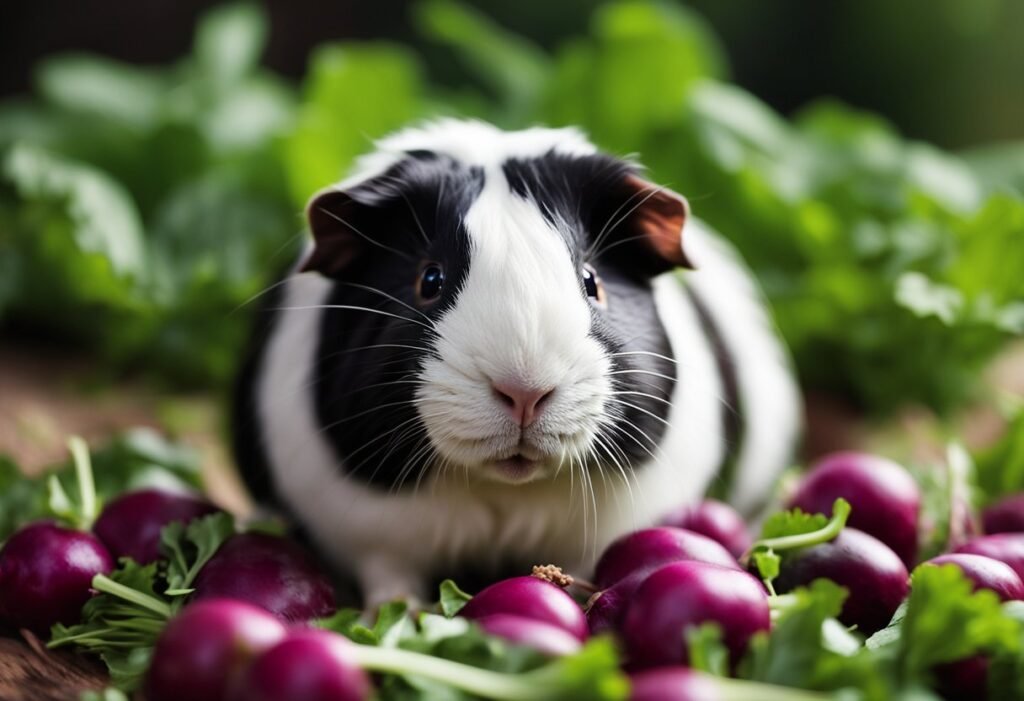
Beet greens are the leafy tops of the beetroot plant, and they are often used in salads and other dishes. But can guinea pigs eat beet greens? The answer is yes, guinea pigs can eat beet greens, and they can be a healthy addition to their diet.
Beet greens are high in fiber, which is important for keeping guinea pigs’ digestive systems healthy. They are also a good source of vitamins A and C, which are essential for maintaining healthy skin and immune function. In addition, beet greens contain minerals such as calcium and iron, which are important for maintaining strong bones and healthy blood.
However, it’s important to note that beet greens should be fed to guinea pigs in moderation. While they are a healthy food, they are also high in oxalates, which can bind to calcium and cause bladder stones. Therefore, it’s best to limit the amount of beet greens your guinea pig eats and to offer a variety of other vegetables and fruits to ensure a balanced diet.
When feeding beet greens to your guinea pig, make sure to wash them thoroughly and remove any stems or tough parts. You can offer them raw or cooked, but make sure to avoid adding any seasonings or oils that could be harmful to your pet.
In summary, guinea pigs can eat beet greens as part of a healthy diet, but it’s important to feed them in moderation and to provide a variety of other foods to ensure a balanced diet.
Health Benefits of Beet Greens for Guinea Pigs

Beet greens are a nutritious leafy vegetable that can be a healthy addition to your guinea pig’s diet. Here are some of the potential health benefits of feeding beet greens to your furry friend:
- Rich in Vitamins and Minerals: Beet greens are packed with essential vitamins and minerals that are important for guinea pig health. They contain high levels of vitamin C, vitamin K, and vitamin A, as well as minerals like calcium, potassium, and iron.
- Good for Digestion: Beet greens are high in fiber, which can help promote healthy digestion in guinea pigs. Fiber is important for maintaining regular bowel movements and preventing digestive issues like constipation.
- May Help Boost Immunity: The vitamin C in beet greens is an important nutrient for guinea pig immunity. It can help support the immune system and protect against illness and disease.
- May Help Prevent Anemia: Guinea pigs are prone to anemia, a condition that occurs when there are not enough red blood cells in the body. Beet greens contain iron, which is important for red blood cell production and can help prevent anemia in guinea pigs.
It’s important to note that while beet greens can be a healthy addition to your guinea pig’s diet, they should not be the only food your pet eats. Guinea pigs require a varied diet that includes hay, fresh vegetables, and a small amount of fruit. Always consult with a veterinarian before making any changes to your guinea pig’s diet.
Potential Risks of Beet Greens for Guinea Pigs
While beet greens can provide some nutritional benefits to guinea pigs, there are also potential risks that need to be considered. Here are a few things to keep in mind:
- Oxalates: Beet greens contain oxalates, which can bind with calcium and other minerals in the guinea pig’s digestive tract. This can lead to the formation of bladder stones or other urinary tract problems. While small amounts of oxalates are generally not harmful, feeding large amounts of beet greens on a regular basis could increase the risk of these issues.
- Pesticides: If you’re feeding your guinea pig beet greens from your own garden or from a local farmer’s market, be aware that they may have been treated with pesticides. These chemicals can be toxic to guinea pigs, so it’s important to wash the greens thoroughly before feeding them to your pet.
- Digestive upset: Some guinea pigs may be sensitive to the high fiber content in beet greens, which can cause digestive upset, including diarrhea. If you notice any changes in your guinea pig’s stool or behavior after feeding them beet greens, it’s best to discontinue the food and consult with a veterinarian.
Overall, while beet greens can be a nutritious addition to your guinea pig’s diet, it’s important to feed them in moderation and be aware of the potential risks. As with any new food, it’s best to introduce beet greens gradually and monitor your guinea pig’s reaction to ensure that they tolerate it well.
How to Feed Beet Greens to Your Guinea Pig
When feeding beet greens to your guinea pig, it’s important to follow a few guidelines to ensure their safety and health. Here are some tips on how to feed beet greens to your guinea pig:
- Wash the greens thoroughly: Before feeding beet greens to your guinea pig, make sure to wash them thoroughly to remove any dirt or pesticides. You can soak them in water for a few minutes and then rinse them well.
- Introduce them gradually: Guinea pigs can be sensitive to new foods, so it’s important to introduce beet greens gradually. Start with a small amount and gradually increase the amount over a few days.
- Limit the amount: While beet greens are safe for guinea pigs to eat, they should be given in moderation. Too much can cause digestive upset and diarrhea. A good rule of thumb is to give your guinea pig a few leaves a couple of times a week.
- Offer variety: Guinea pigs need a varied diet to stay healthy, so make sure to offer a variety of vegetables, hay, and pellets in addition to beet greens.
- Monitor their health: After introducing beet greens to your guinea pig’s diet, monitor their health closely. If you notice any signs of digestive upset or changes in their behavior, stop feeding them beet greens and consult with a veterinarian.
By following these guidelines, you can safely feed beet greens to your guinea pig and provide them with a healthy and varied diet.
Alternatives to Beet Greens for Guinea Pigs
While beet greens are a nutritious option for guinea pigs, it’s important to provide them with a varied diet that includes a range of vegetables and fruits. Here are a few alternatives to beet greens that you can consider:
Romaine Lettuce
Romaine lettuce is a great source of vitamin C and fiber, which makes it a healthy option for guinea pigs. It’s also low in calcium, which is important for guinea pigs since they are prone to developing bladder stones.
Carrots
Carrots are a good source of vitamin A, which is essential for guinea pigs’ eye health. They also contain fiber, which helps with digestion. However, carrots are high in sugar, so they should be given to guinea pigs in moderation.
Bell Peppers
Bell peppers are rich in vitamin C and low in sugar, which makes them a great option for guinea pigs. They also come in a range of colors, which adds variety to their diet.
Cucumber
Cucumber is a hydrating vegetable that contains vitamin C and fiber. It’s also low in calories, which makes it a good option for guinea pigs that are watching their weight.
Parsley
Parsley is a good source of vitamin C and contains antioxidants that can help boost guinea pigs’ immune system. However, it’s important to note that parsley should be given in moderation since it’s high in calcium.
By providing your guinea pigs with a varied diet that includes a range of vegetables and fruits, you can ensure that they are getting all the nutrients they need to stay healthy and happy.
Conclusion
In conclusion, we have learned that beet greens are safe for guinea pigs to eat in moderation. They are a good source of vitamin C, which is essential for guinea pigs since they cannot produce it on their own. However, beet greens are also high in oxalates, which can lead to the formation of bladder stones in guinea pigs if consumed in large quantities.
It is important to note that guinea pigs should not rely solely on beet greens as their main source of nutrition. A balanced diet consisting of hay, fresh vegetables, and a small amount of pellets is essential for their health and well-being.
When feeding beet greens to guinea pigs, it is important to wash them thoroughly and remove any stems or tough parts. It is also recommended to introduce new foods slowly and in small quantities to avoid digestive upset.
Overall, beet greens can be a nutritious addition to a guinea pig’s diet when fed in moderation and as part of a balanced diet.
Frequently Asked Questions
What greens should guinea pigs avoid eating?
Guinea pigs should avoid eating greens that are high in oxalic acid, such as spinach, parsley, and beetroot greens. These greens can lead to bladder stones and other health problems in guinea pigs.
Can guinea pigs safely eat turnip greens?
Yes, guinea pigs can safely eat turnip greens. Turnip greens are a great source of vitamin C, vitamin A, and calcium for guinea pigs. However, they should be fed in moderation, as too much can cause digestive problems.
Are beet greens safe for guinea pigs to eat?
Yes, beet greens are safe for guinea pigs to eat. They are a good source of vitamin C, vitamin A, and fiber. However, they should be fed in moderation, as too much can cause digestive problems.
Can guinea pigs eat radish greens?
Yes, guinea pigs can eat radish greens. Radish greens are a good source of vitamin C, vitamin A, and calcium for guinea pigs. However, they should be fed in moderation, as too much can cause digestive problems.
Is it safe for guinea pigs to eat broccoli leaves?
Yes, guinea pigs can eat broccoli leaves. Broccoli leaves are a good source of vitamin C, vitamin A, and calcium for guinea pigs. However, they should be fed in moderation, as too much can cause digestive problems.
Can guinea pigs consume kale leaves?
Yes, guinea pigs can consume kale leaves. Kale leaves are a great source of vitamin C, vitamin A, and calcium for guinea pigs. However, they should be fed in moderation, as too much can cause digestive problems.

